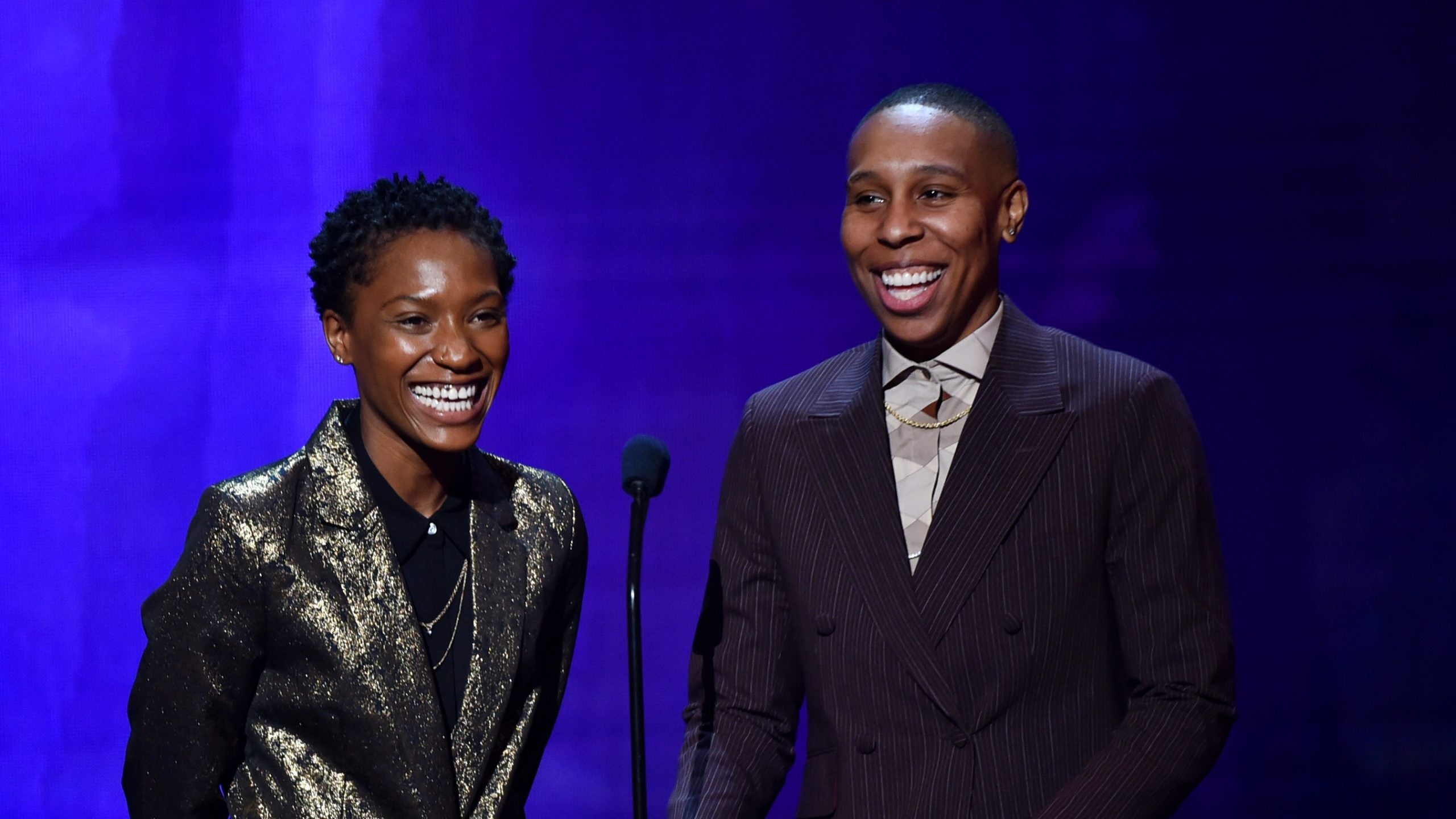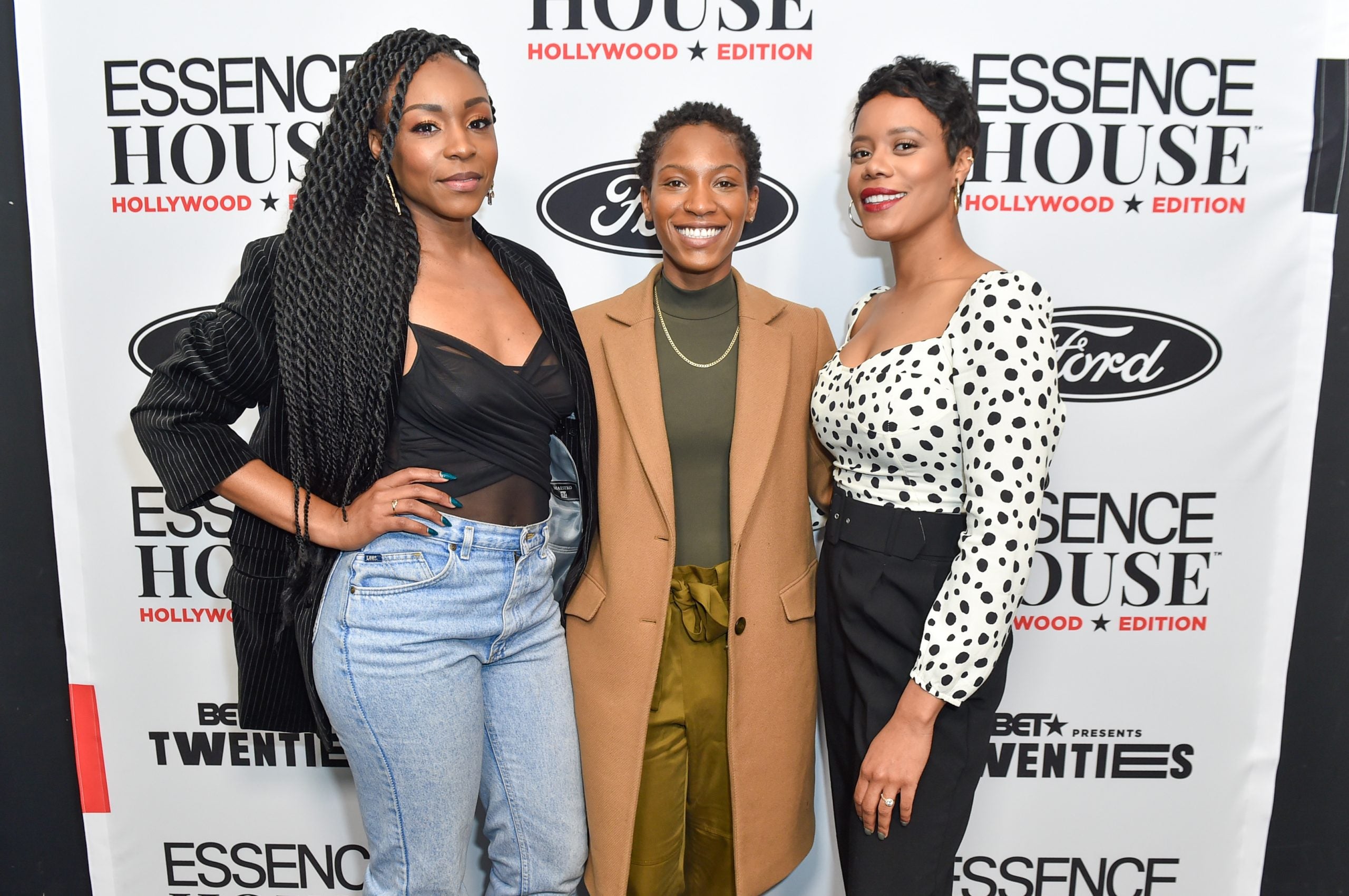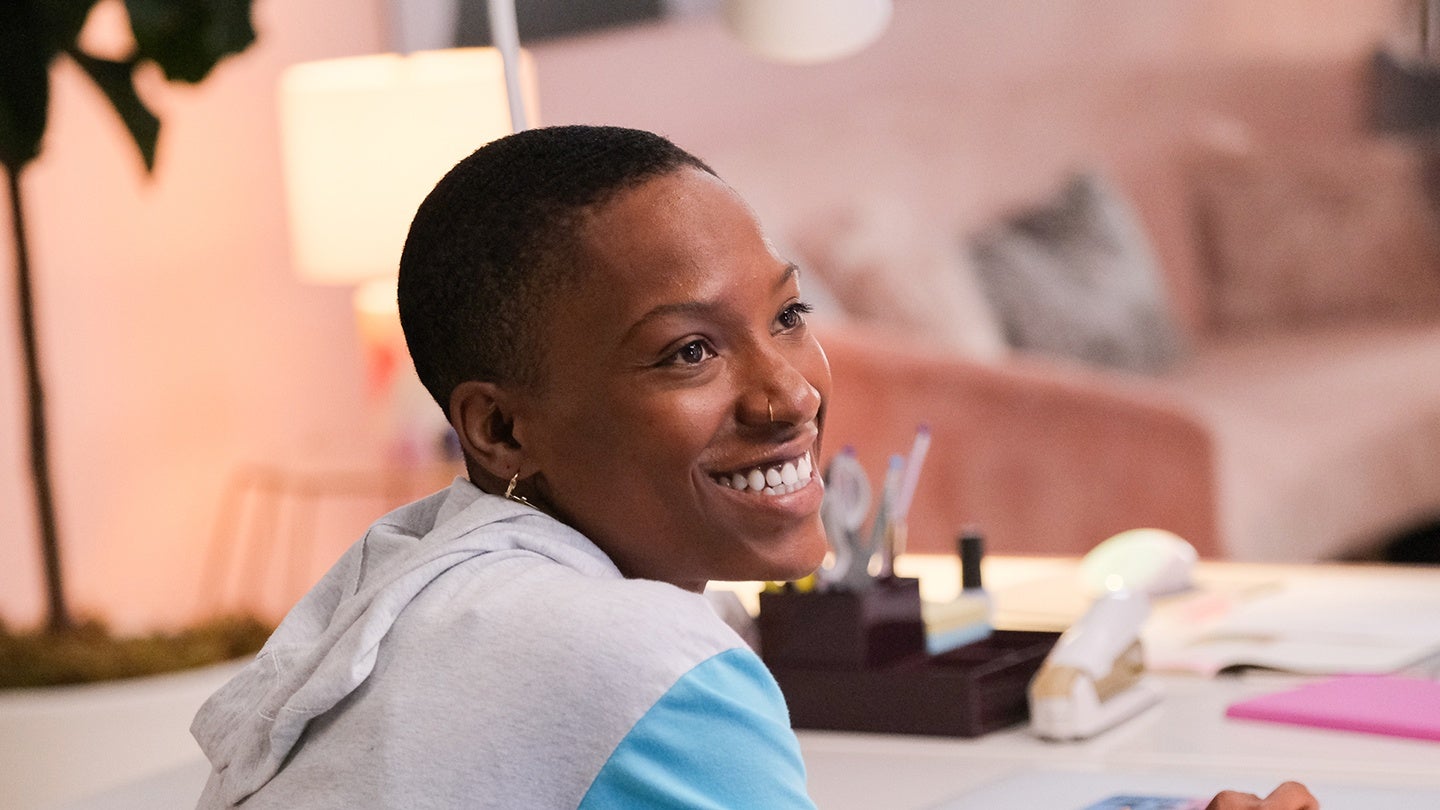Lena Waithe is crystal clear about her role in Hollywood and in the telling of Black stories.
“It’s to not be afraid to put myself in the narrative,” says the prolific writer-producer who’s brought audiences the film Queen and Slim and groundbreaking episodes of television like Master of None’s “Thanksgiving.” “To not hide and not shy away from it, but to lean into it and to remind people that this is also a part of our family — your lesbian cousin that comes over for the holidays and her ‘friend’ are also a part of our narrative.”
That’s why she’s always been unapologetic about including LGBTQ+ characters and actors in the work she creates. Because Black people are members of the queer community, too, she says, even though homophobia and transphobia might have some believeing otherwise. Insert her latest project, Twenties, the new series on BET, which is the first show in the network’s 40-year history to be led by an LGBTQ+ person.

Loosely based on Waithe’s own start in the entertainment industry, Twenties follows Hattie, a queer Black woman, and her two straight freinds Marie and Nia as they chase their dreams in Los Angeles during their 20s. Hattie, played by newcomer Jonica “JoJo” T. Gibbs, wants to become a TV writer, but keeps coming up short, focusing more on an ever-present attraction to straight women than her craft. But when she gets offered a writer’s PA job by Ida B., a successful Black television writer/producer played by Sophina Brown, she might finally be able to step out on her own.
Also starring Christina Elmore, Gabrielle Graham, Big Sean, Jenifer Lewis, Rick Fox, Vanessa Williams and Kym Whitley as Hattie’s mom, the show picks up the baton from perennial faves Living Single and Girlfriends (as does Issa Rae’s Insecure). But instead of having LGBTQ+ characters on the periphery, Twenties is led by one, making history for the network. While BET has had other queer characters part of main casts of series before — last year’s Boomerang reimagining (also from Waithe) and the short-lived Brandy-fronted series, Zoe Ever After, come to mind — this is the first time a scripted series will center around a LGBTQ+ character.

“I’m honored to put her at the center of the narrative for the first time and to do it on BET,” Waithe says. “It’s been a long time coming and it’s not just a celebration for the Black queer community but a celebration for the queer community as a whole and for us as a society.”
Gibbs, a standup comedian for whom this role is her first major gig, agreed, noting that she grew up watching BET, but never truly seeing herself represented authentically onscreen, as many Black LGBTQ+ people can relate to.
“My heart flutters when I think about being on the channel and being a part of the transition that the network is making to have quality and more diverse scripted content,” she says. “I love [having] the opportunity to expound upon the images and the thoughts that [some Black people] have with people in the LGBTQ+ community. I know that it’s going to be significant, not only for me, but for so many other people who haven’t had the opportunity to see a version of themselves in television and film.”

